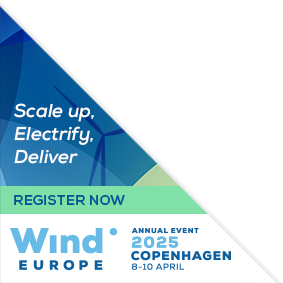We would like to invite you to come and see the posters at our upcoming conference. The posters will showcase a diverse range of research topics, and will give delegates an opportunity to engage with the authors and learn more about their work. Whether you are a seasoned researcher or simply curious about the latest developments in your field, we believe that the posters will offer something of interest to everyone. So please join us at the conference and take advantage of this opportunity to learn and engage with your peers in the academic community. We look forward to seeing you there!

PO044: Repowering through local co-financing: the road ahead for a just transition in Portugal
Filipe Alves, Senior Researcher, Faculty of Sciences of the University of Lisbon
Abstract
The financial participation of a wider range of stakeholders is a fundamental aspect for a just, inclusive, and sustainable energy transition in Europe. This is particular relevant for Southern and Eastern European countries where such practices are less common, or inexistent. The case of wind energy in Portugal is striking as there are no examples of wind energy cooperatives, nor wind energy community projects, or any case of crowdsourcing for such investments. The vast majority of wind farms is owned by just a few very large private companies, most with foreign capital. Moreover, the tendency in the past two decades is for increased centralization of wind power ownership due mergers and acquisitions operations, the market "efficiency" argument, legal procedures for new wind farms and economic incentives. In our project Wind Just 4 All, we aim to change this reality by promoting and implementing new business models for the necessary financing of repowering investments of existing wind farms. In order to do so our Wind Lab focuses on four distinctive strategies to bring more inclusive financing mechanisms: 1) Voluntary economic participation: Partnering with existing energy companies for future repowering investments through community financial participation; 2) Legal / political lobby: Setting new ownership structures with existing energy companies for future investments through political and legal lobby; 3) Economic emancipation: Acquiring existing wind farms by energy communities / cooperatives; 4) Developing Living Labs and Energy Communities Empowerment for new wind farms. Based on our empirical findings so far, it has become clear that strategies 1) and 2) are finding high levels of ineffectiveness, avoidance and even resistance from the status quo. Strategy 3) has not been implemented yet due to a lack of available and willing case studies. Therefore, supporting and pro-actively contributing to the development of Energy Communities is the way forward.











